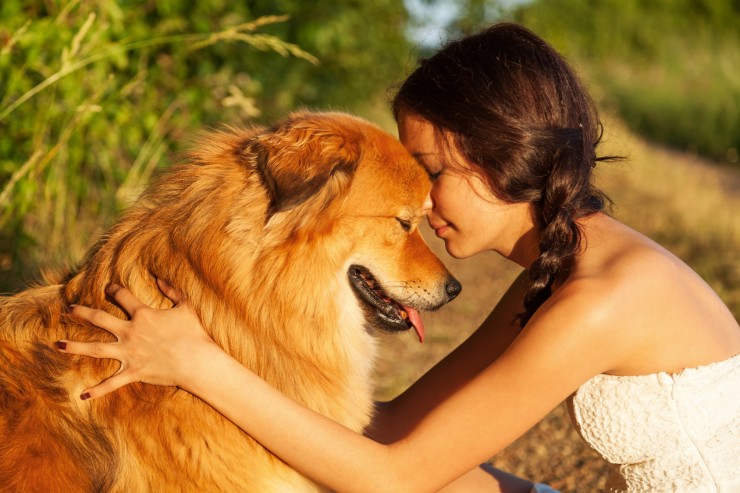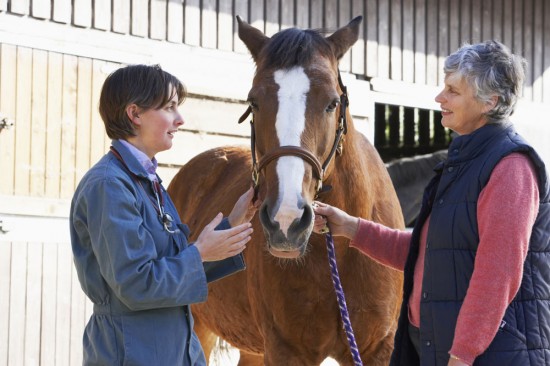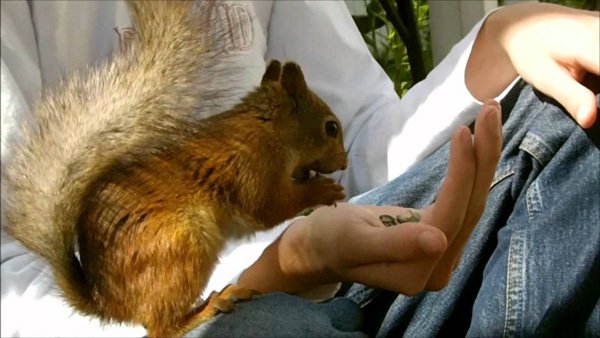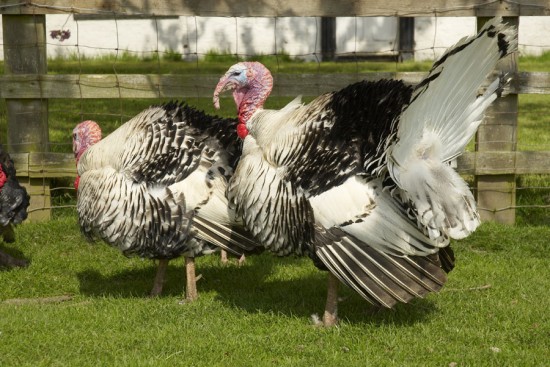
The Golden Retriever is an extremely popular choice as a pet and justifiably so. They are amicable loyal and affectionate dogs that love to be part of the household and to join in all the fun and games. But, they are open to some inherited health disorders that need to be tested and monitored. Golden Retrievers are really rather simple to train, just as long as you are willing to put in the time and have a great deal of perseverance.
Picking your Golden Retriever Pup
When selecting a pup bear in mind that Golden Retriever puppies are really charming and charismatic, but you have got to center your decision on something other than just appearance. Before you pick up your pup, you must always make sure that he has a robust body, with straight legs. The puppy should be sturdy and muscled, yet be wriggly and lively as you first endeavor to lift him up. You must also make sure that he has healthy teeth and gums, and check out all of his body to make sure that he is in good condition and there is no evidence of skin conditions.
Hereditary Health Problems Connected with the Golden Retriever
Eye infection is quite commonplace with Golden Retrievers. Some Golden Retrievers have hereditary cataracts. Eye checks at about 12 months will be able to determine if there are any congenital eye conditions and to arrange the medical care. If cataracts are present, then breeding would not be recommended.
There are other forms of ocular diseasess as well, such as retinal dysplasia. Ensure you take your Retriever for a yearly eye check to make certain all is ok as eye conditions can strike at any age.
SAS (Subvalvular Aortic Stenosis) is the most widespread and common form of heart condition to affect the Golden Retriever breed. If you are contemplating breeding from your Golden Retriever, you must have the dog tested for heart disease by a certified veterinary cardiologist. If the cardiologist finds a heart murmur, he will advise further checks for your dog. If your Golden Retriever is diagnosed to have a heart disease, he should not breed.
Hip dysplasia is a complaint of the hip joints, whereby the joint cartilage is abraded causing pain and lameness. In bigger dogs, for example the Golden Retriever, hip dysplasia is common. Hip dysplasia is an inherited disorder and gets gradually worse with maturity, regularly leading to osteoarthritis in the later phases. Even though there's no cure for hip dysplasia, there are a variety of treatments which should relieve the disorder, and one of the most essential is to keep the weight of your dog down as obesity will agravate the condition
Further Health Problems
Just as with any dog breeds, Golden Retrievers are prone to a wide range of health troubles and complaints. Several of these problems such as ear and skin disease, parasites and dental troubles can be spotted quickly with periodic inspection of the dog. This is best accomplished while grooming, when you should check carefully at the dogs generally appearance to find any troubles.
Check for ticks and fleas as these could lead to more severe health issues for both yourself and your dog. Look in your dogs' ears for signs of inflammation, if there's any discharge, redness or a horrid smell then there is almost definitely an ear disease. Additionally check your dogs' teeth and mouth for signs of disease or decay. Internal parasites are not so simple to spot, but they can be potentially dangerous, so learn to recognise the indications and take action if you suspect a problem.
Training the Golden Retriever
The Golden Retriever is one of the most favorite house dogs in the world. They are quite trouble-free to train and really intelligent. The Golden Retriever is also loyal to its owners, amiable, and great with kids of all ages.
Yet, the Golden Retriever can be a demanding dog, as far as your time and attention is concerned, therefore if you are away from home during the day then this is possibly not the dog for you. However, for a big active family who love the great outdoors, then the Golden Retriever is ideal and the dog will love to join in anything that the family does.
Time and Patience - Training the Golden Retriever
Even though the Golden Retriever is really intelligent, he is actually quite slow to mature - a few owners will explain to you that their dog never did! Therefore training can take much time and perseverance, rather like teaching a little child! Lots of short training stints are more successful than prolonged sessions. Use plenty of praise too as the Golden Retriever loves to make you happy and you can utilize this characteristic to your advantage!
if he is badly behaved or just does not get the training, do not lose your temper or shout. This never works and may actually make matters worse. The better policy is to ignore your dog if he is disobedient, once more playing on his need for fuss. He will dislike it if he does not get your interest and will quickly discover that you will only make a fuss if he is well behaved!
The Basic Commands
Arrange your training step by step and make sure the whole household recognizes the commands. It's no good if one person uses a phrase for 'come here' and another uses a different command. So write the commands you are going to use and pin them up in the kitchen or hall, so everybody is working as one!
While the puppy is really little, start with name recognition training and then move on to the 'come' command as the dog starts to acknowledge his name. Once he understands coming when called you can quickly progress to making him to 'sit' when he obeys. Hold a snack over his head and when he looks up gently touch his bottom so that he intuitively takes up the sit position. Now reward him - just as his backside touches the floor - then he will link the command to the action. Keep in mind, all this may take some time and there will be many setbacks, but if you praise him every time he does it right, the dogs' inborn want to please will make your Golden Retriever grasp the commands.
Once the basic training is conquered then you can proceed to the next phase. When your dog has 'come' and you've made him 'sit', then the next command is to 'stay'. Maintain the sit position and lift your hand, palm out, to him and say 'stay'. Move back just one step and renew the command. As the dog obeys the 'stay' command, then begin to step further and further back. If the dog is doing ok, then try out turning away from him and walking away. This is difficult for any dog, especially a Golden Retriever, as he considers you are leaving him!
Now that you have both mastered these commands and you are confident that in any situation he will obey you, then you can progress with advanced training, and have plenty of enjoyment discovering new skills together.
Nevertheless, if you find these basic commands a trouble, don't lose heart. Dog or puppy obedience training courses are held all over the country and may be the means to motivate your training if you feel a bit out of your depth. Classes are also a good way of socializing your Golden Retriever with people and dogs so that he will be quite calm when meeting other people and dogs.
 The Borzoi A Breed With Few Hereditary Health Disorders
The Borzoi A Breed With Few Hereditary Health Disorders
 How To Get Your Dog Through A Health Scare Without Losing Your Mind
How To Get Your Dog Through A Health Scare Without Losing Your Mind
 Getting A Horse Or Pony Vetted Prior To Purchase
Getting A Horse Or Pony Vetted Prior To Purchase
 Information About Fish For Potential Fish Owners
Information About Fish For Potential Fish Owners
 Wagging Tail – Interpreting Dog Behavior
Wagging Tail – Interpreting Dog Behavior
 How Easy Is It To Keep A Turkey Or Maybe Two?
How Easy Is It To Keep A Turkey Or Maybe Two?
 Dangerous Places Where Cats Like To Hide
Dangerous Places
Dangerous Places Where Cats Like To Hide
Dangerous Places
 The Imperial Siberian Forest Cat
The Imperial Sibe
The Imperial Siberian Forest Cat
The Imperial Sibe
 Some Important Information For Potential Buyers Of A Basset Hound
Some Important In
Some Important Information For Potential Buyers Of A Basset Hound
Some Important In
 The Six Main Causes Of Gastrointestinal Disease In Ferrets
The Six Main Caus
The Six Main Causes Of Gastrointestinal Disease In Ferrets
The Six Main Caus
 Recognising Heat Stroke In Ferrets
Recognising Heat
Recognising Heat Stroke In Ferrets
Recognising Heat
Copyright © 2005-2016 Pet Information All Rights Reserved
Contact us: www162date@outlook.com